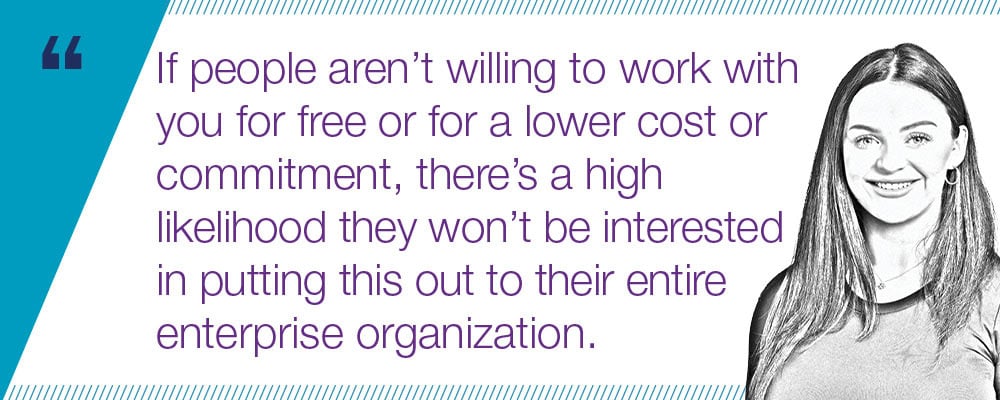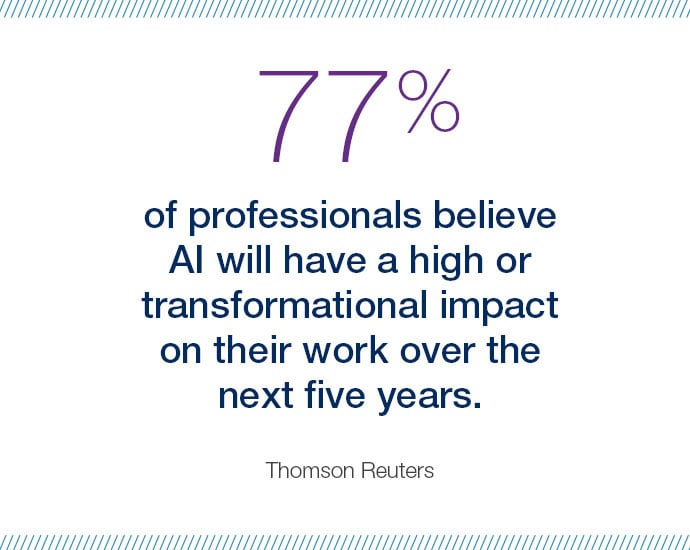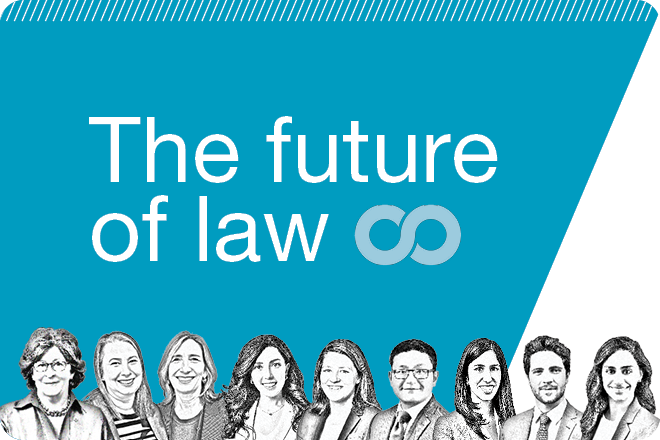Generative AI has been a buzzword in the tech world, and it’s now making inroads into more traditional sectors like insurance. One standout example is Wisedocs, a Toronto-based startup using AI to review and summarize medical records, that recently raised $12.7 million in Series A financing and $4.5 million in growth capital financing with the support of BLG.
BLG Partner Frazer House caught up with Wisedocs founders Connor Atchison and Jenna Earnshaw to discuss the pivotal moments that led to the company’s rapid growth, the future of technology in the insurance industry, and advice for startups looking to expand in the tech space.
Frazer: Connor, you have a military background, while Jenna, your expertise is mainly in entrepreneurship. Could you share the inspiration behind founding Wisedocs?
Connor: Wisedocs grew out of my professional and personal experience serving in the Canadian Forces. There were a lot of issues around medical records, especially the transition for veterans moving to civilian life. Everything was manual and I thought, why can't we use machines to do this?
Jenna: Both of my parents are entrepreneurs — my dad was always inventing different things — so I grew up in that environment and gravitated towards it. I went through an entrepreneurship program after university called The Next Big Thing, which is now called The League of Innovators, and I knew building companies was what got me up in the morning.
Connor and I started having conversations with disability case managers and claims adjusters, and people at these large organizations seemed to have a critical need for something like what we were developing. It felt like an untapped market.

Frazer: What was the impetus for making the change from Bear Health to Wisedocs?
Connor: Bear stood for Biomedical Evaluation Assessment Review. There wasn’t much awareness at the time behind what that meant or what it was.
Jenna: Everyone at the time was talking about this concept of intelligent document processing. That’s what we did. Once we landed on the new name, it stuck so hard. As an organization, we really try to bring “wise” into all aspects of the work that we do.
Frazer: What advice do you have for founders when the business reaches a pivot point?
Connor: We started out with a narrower B2C model, but you really have to understand where the technology and go-to-market strategy align. If those two things don’t align, you’re probably building the wrong thing or servicing the wrong market. As we continued the development of our business, we realized that our target market was too narrow and that our product-market fit would be much better supported by a B2B model.
If you build the right thing, that your team can sell, that allows you to capitalize on market segmentation, you’ll succeed. In the beginning I’d say, “Oh yeah, we can do that. And we can do that.” as many founders tend to do. Don’t chase every shiny red ball. Focus on one thing and do it well.
Jenna: My advice to is to take a step back and think about what people are willing to pay for. Of course, people are interested in generative AI, improving their processes and cutting their costs. But you don’t want to be stuck on a hope journey, thinking just because people said they’re interested in your product, they want to buy it.
Early-stage companies can test this through things like proof of concept and pilot customers. If people aren’t willing to work with you for free or for a lower cost or commitment, there’s a high likelihood they won’t be interested in putting this out to their entire enterprise organization.
Frazer: Something I’ve witnessed firsthand is that everyone on your team is committed to the company mission. What are the core values that drive Wisedocs and how do you stay true to those values as the company grows?
Connor: Our values are focused on our culture and why we all show up. We have four core values: PHIT. It stands for purpose-driven, honesty, intelligence and tenacity. If people don’t align with those values, they don’t work with us. And I think that’s infectious, right? Leaving the military, I lost my tribe but I found it again in the team that we’ve built.
Jenna: I think every company has core values but they don’t always translate into day-to-day life. Three years ago, we had different values and, candidly, no one could remember what they were. So, we’ve worked hard at bringing values into the day-to-day experience. We have Slack channels, PHIT awards and other methods to strategically implement these values so they come through regularly to inspire our team.
Frazer: Turning to your growth, congratulations on the almost $13 million Series A and the additional $4.5 million in growth capital. What do these milestones mean for Wisedocs and its future?
Jenna: We were in an interesting position before the funding. We were operating at 100 per cent inbound demand without an outbound sales team. People were raising their hands looking for us. We’re really focused on servicing the customers that have already come to us and scaling to support them. It’s exciting to use this capital to continue to build the team and ride that momentum, rather than using our funds trying to find momentum.
Frazer: What are the biggest trends you’re seeing in AI?
Connor: Everyone has the newest solution and they’re attaching generative AI to it. We stay away from buzzwords. The companies that can build real software solutions are the ones that can sustain long term.
Jenna: The shift in the past year has been monumental beyond belief. Conversations three years ago suggested enterprises were interested in AI, but it wasn’t a priority and there were no strategies in place. Now, companies are saying, “we need an AI strategy” and investing in hiring to support it. Startups can take advantage of enterprises being afraid of missing out or moving too slow, despite some people still being a bit scared of AI.

Frazer: Everyone is trying to get data to train their AI models, but you guys have vast amounts of a special type of content, medical records, to train your model. What advice do you have for companies newly entering the market about building their AI models?
Jenna: Companies just entering the market don’t know their blind spots until they get granular with data analysis. It’s an investment, but we’ve done a ton of studies to know where the blind spots are.
Connor: And we believe our strengths lie in what were once our blind spots. Look at it like science experiments. It’s those fringe elements that are trade secrets and unless you’ve done hundreds of these experiments, you don’t know what those fringe elements are going to be. This is often overlooked when companies are entering spaces – you don’t know what you don’t know.
Frazer: What are the biggest challenges Wisedocs faces in the insurance industry and how have you overcome them?
Jenna: Sensitivity around how data is being used. The companies we work with are very keen to have an AI usage policy. Ensure there is integrity, ensure you identify what data can and can’t be used for training, and ensure that you can show up as an enterprise AI solution. We already had models that were hitting high accuracy marks before the big AI boom even started, so that’s allowed us to allocate resources to a thoughtful approach to compliance and ultimately being well positioned to capitalize on the technical advantages we already had.
Connor: People are finding it takes more time and more work to find efficiencies with generative AI. When you can figure out how to use AI without overload, that’s where the win is.

Frazer: Where do you see the insurance industry in the next 5-10 years and what role do you see Wisedocs playing in that future?
Jenna: We’ve never seen an industry want to move so quickly on innovation and I think we’re going to see organizations doubling down on their AI investments. Having said that, organizations could go too far with automation, particularly in the roles that deal with claimants. I think it’s important that Wisedocs always delivers a human-centric approach because we are dealing with people’s lives.
Connor: We believe that our AI models are tools best suited to be used within a human-centric insurance industry. If you quantify everything and it’s all about metrics, you’re losing out on that human-centric component.
I think there’s going to be two mindsets: one way is chasing dollars and cents and improving efficiency at all costs, and the other is focusing on the fact that behind every claim is a human being and if we can help them at this vulnerable moment when they are making medical insurance claims, they will have better care outcomes. Our insurance industry clients will grow alongside that approach, and the whole system improves.


